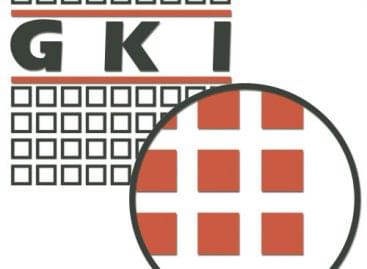GKI: Electricity is expensive for Hungarian businesses
In October 2023, electricity consumption was 1.6% lower compared to a year earlier based on KSH data, and thus continued the downward trend characteristic of the previous months. One of the reasons for this is the continuous spread of growing small household power plants (e.g. solar panels), which is not included in the statistics (this reduces consumption due to the balance settlement). The other reason is the more aware non-residential users who receive electricity at market prices, so they were forced to reduce their consumption due to rising prices over the past year and a half.
In August, the decrease in electricity consumption in Hungary was 2.9%, but in the EU, on average, electricity consumption decreased by 3.8%, but in Central Europe the average decrease was also 3.6% . Meanwhile, in Hungary, the wholesale electricity market price (next-day DAM) was the 7th most expensive for businesses in the EU and exceeded EUR 100/MWh (nearly HUF 39/kWh). Prices have continued to rise since then, largely due to higher gas prices.
On the residential side, the significant decrease in consumption has not yet started, the primary reason for which is the “reduced overhead” price. The population had the cheapest access to electricity in Hungary compared to other EU countries (comparing prices in the capital). While the reduced utility price in Hungary is only 9.9 euros/kWh, e.g. in August of this year, in Romania you had to pay 64% more and in Austria more than 227% more for one kWh, while in Berlin, Rome or Prague the price of electricity was almost four times higher than at home. The “market price” determined for the Hungarian population roughly corresponds to Slovakian prices.
Related news
At K&H AI implementation is coupled with knowledge development
🎧 Hallgasd a cikket: Lejátszás Szünet Folytatás Leállítás Nyelv: Auto…
Read more >Related news
MOHU: 5,200 return points are in operation, but 47 larger settlements still do not have RE points – public “enema” machines may be introduced
🎧 Hallgasd a cikket: Lejátszás Szünet Folytatás Leállítás Nyelv: Auto…
Read more >Change in Rossmann Hungary’s leadership: Kornél Németh decided to move towards new challenges in 2026
🎧 Hallgasd a cikket: Lejátszás Szünet Folytatás Leállítás Nyelv: Auto…
Read more >








